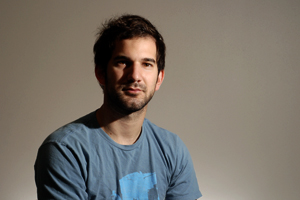Opinion: Killing in the name of?
September 28, 2011
Anthony Russo
Anthony Russo is a Ph.D. Student and Graduate Assistant in the Department of Political Science. Contact him at [email protected].
Last Wednesday, while I was sitting around my apartment watching TV, Troy Davis was strapped to a gurney about to die at the hands of the State of Georgia. Davis’ 20-plus year battle to avoid execution ended. He was given the death penalty after being found guilty in the 1989 murder of Savannah police officer Mark MacPhail.
I had no idea this was going on, or that it was such big news, but all the major cable news networks were covering it, so I figured it’d be worth my time to see what the fuss was about. Despite a lack of physical evidence and seven of nine key witnesses against him disputing all or parts of their testimony, state and federal judges repeatedly refused to grant Davis a new trial. The U.S. Supreme Court rejected a last-minute request to block his execution.
After hearing all of this, I was pretty sickened. I am not familiar enough with the case to make further conjecture as to whether or not Davis was guilty or not. Hearing about this case brought to mind an issue I don’t often think about, but am quite opinionated on: the death penalty.
The death penalty is just bad policy, from an economic and moral perspective. The economic argument is easy to play. Lifelong imprisonment is many times cheaper than the legal costs borne by taxpayers that accumulate over the many trials and appeals that death row inmates go through. Furthermore, there is no strong consensus for or against a “deterrent effect” — the idea that the threat of a death penalty deters anyone from murder or other heinous crimes.
What justification is there for using such copious amounts of taxpayer money for a policy that we aren’t even fully convinced works? Some may argue that the idea of “justice” being served is more valuable than any deterrence effect, but that would be one heck of an example of a policy moving money from many to benefit a few — a very, very few.
Furthermore, the moral card can be played. You can debate all day whether the death penalty is “cruel and unusual,” but that’s not what I care about. For me, the thought of one innocent man being put to death makes the whole idea of a death penalty not even worth considering.
We should have respect for all forms of life. Those who bemoan the “right to life” for the unborn child then turn around and promote (or at least not condemn) the death penalty are hypocrites. Some will say an unborn child has not committed the crimes of those on death row, and an innocent life will be lost.
Well, I would be willing to put some serious money on the table that at least one innocent life has been lost to the death penalty. And don’t many religious folks (I among them) believe one can repent for their sins? No one should have the ability to decide whose life is not worth living. And if you don’t buy the religious or moral argument, you can bank on the economic one.

























